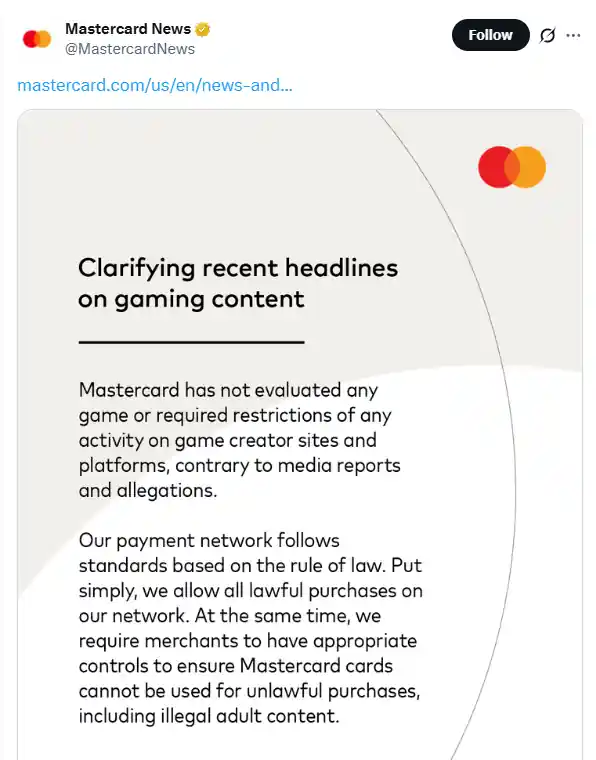Mastercard Lies about Censorship of Adult Games

In the wake of a series of adult games being delisted from Steam due to “payment processor restrictions,” Mastercard has issued a public statement claiming it has nothing to do with the growing wave of censorship. But fans and creators aren’t buying it.
Mastercard Lies about Censorship of Adult Games
In a brief and vague message posted on Twitter, Mastercard stated:

The statement was quickly flagged by Twitter’s community notes, citing that both Steam and Itch.io have publicly acknowledged removing adult games due to Mastercard’s policies. Furthermore, Mastercard—and other major processors like Visa, PayPal, and Stripe—have long histories of pressuring Japanese platforms to restrict adult content.
The gaming community wasn’t silent. Within minutes, Mastercard’s post was flooded with responses accusing the company of dishonesty and hypocrisy. Here are some of the strongest reactions:
-
“Why are you lying? Steam and Itch both confirmed your pressure.”
-
“There are literal emails showing Mastercard demanded the removal of legal content.”
-
“So now you’re gaslighting everyone? Pathetic.”
-
“Why does a feminist group from Australia get to tell Americans what to buy?”
-
“You forced Stripe to enforce harsher rules than even your own guidelines. Explain that.”
-
“This contradicts everything the platforms themselves have stated publicly.”
-
“Mastercard and Visa have censored Japanese adult platforms for years. Enough is enough.”
-
“Do you really think people are this gullible?”
-
“Censorship is dangerous. You don’t get to decide what’s legal when it already is.”
-
“These are legally approved games—your policies are overreaching and dishonest.”
-
“Why does OnlyFans get a pass, but anime games are banned?”
-
“Unless you allow Steam and Itch to restore the games, your words mean nothing.”
Gamers and adult content fans have begun organizing mass campaigns to pressure Mastercard and Visa into lifting what they call “indirect corporate censorship.” Many are calling for clearer policies, transparency in enforcement, and respect for legal content that aligns with local laws.
The era when credit card companies operated behind the scenes may be ending, as communities grow louder in their demand for accountability.


